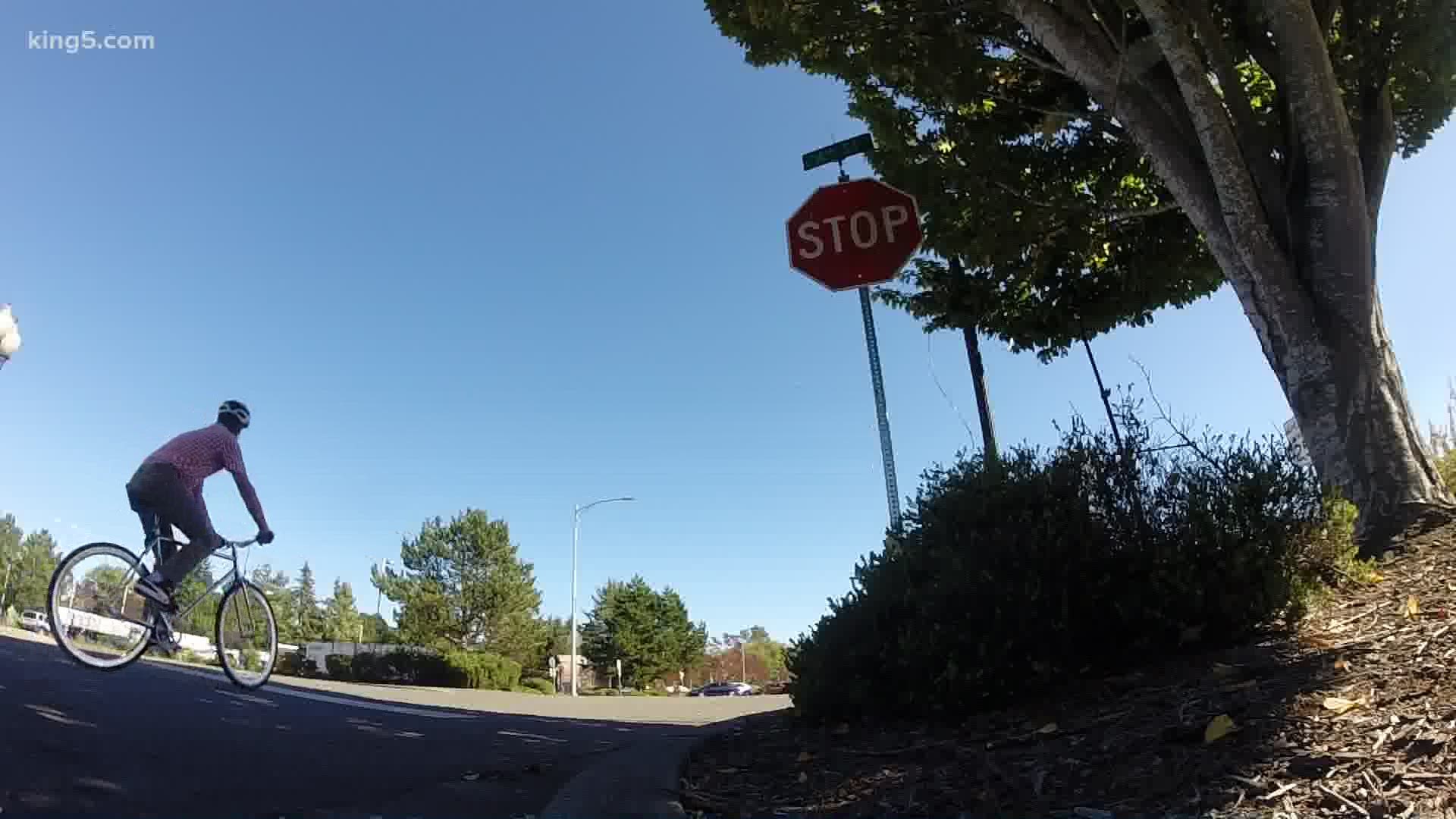Bicyclists will no longer be required to stop at stop signs starting Thursday, Oct. 1 in Washington state.
Lawmakers say the new rule is actually safer for people on bicycles.
Washington Bikes, a statewide bicycle advocacy organization, released a statement on Sept. 28 that the law will allow people on bicycles to treat stop signs as yield signs.
The “Safety Stop” law will make it legal for bikers to roll through an intersection if the coast is clear. Previously, they were required to stop, like motor vehicles.
The law, which was sponsored by Sen. Andy Billig (D-3rd) and Rep. Joe Fitzgibbon (D-34th), requires people on bicycles to slow down to a reasonable speed that would allow them to stop if necessary.
Therefore, people riding bikes must yield to any vehicle already in the intersection.
According to the release, Washington is the fifth state to legalize the Safety Stop, following Idaho, Delaware, Arkansas, and Oregon. Unlike Oregon, which passed this law in 2019 after multiple attempts, 2020 was the first year that the Safety Stop was introduced in the Washington State Legislature.
Idaho was the first state to pass the law called it the “Idaho Stop.” Since then, bicycling injuries in Idaho dropped by 14% in 1982 the same year the law went into effect.
The Seattle Department of Transportation outlined the following reasons for the new law:
"The study found that cities with Safety Stop laws had 14.5% fewer bicycle injuries one year after adoption, and 30.4% better overall bicycle safety than similar cities.
That same study also detailed some benefits and rationale for the Safety Stop:
- Reduced confusion and fewer collisions: People biking who stop at stop signs have said driver confusion about right of way increases the risk of collisions. It also leads drivers to give people biking the right of way improperly, creating awkward delays and additional collision risks. The Safety Stop law reduces this confusion.
- Reduced exposure to air pollution: Air pollution is generally highest at intersections, and allowing people biking to clear the intersections faster reduces their exposure.
- Reduced overuse injury: People biking may experience a higher risk of strain and overuse injuries from consistent stopping and re-starting."

